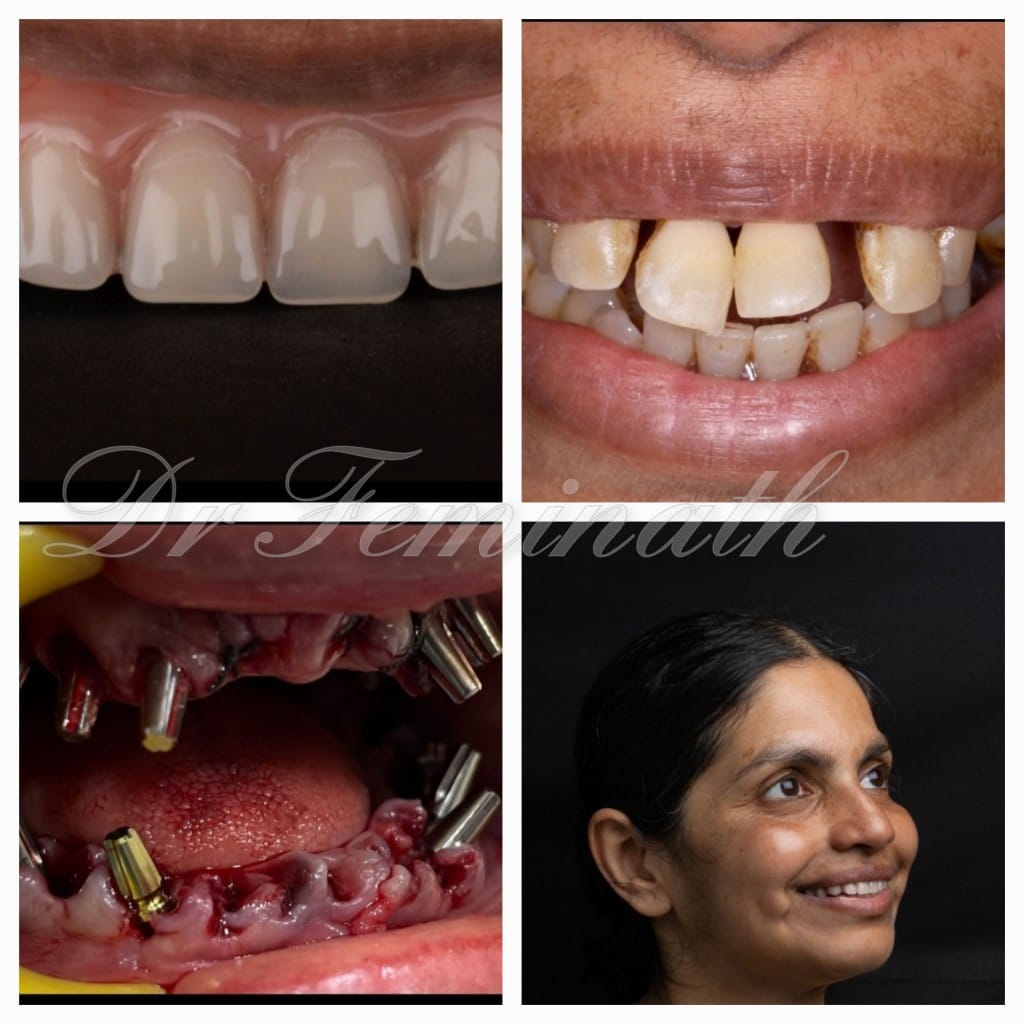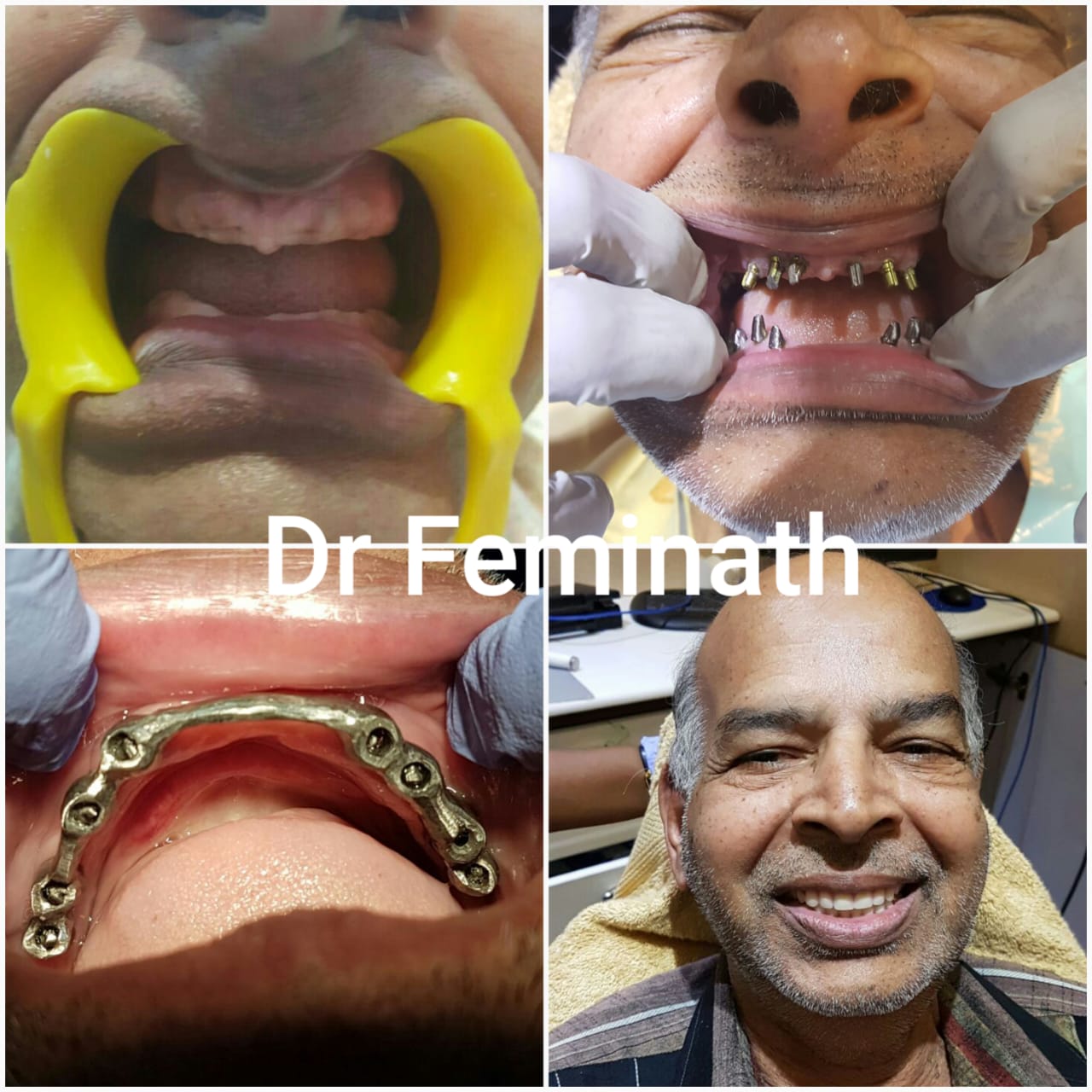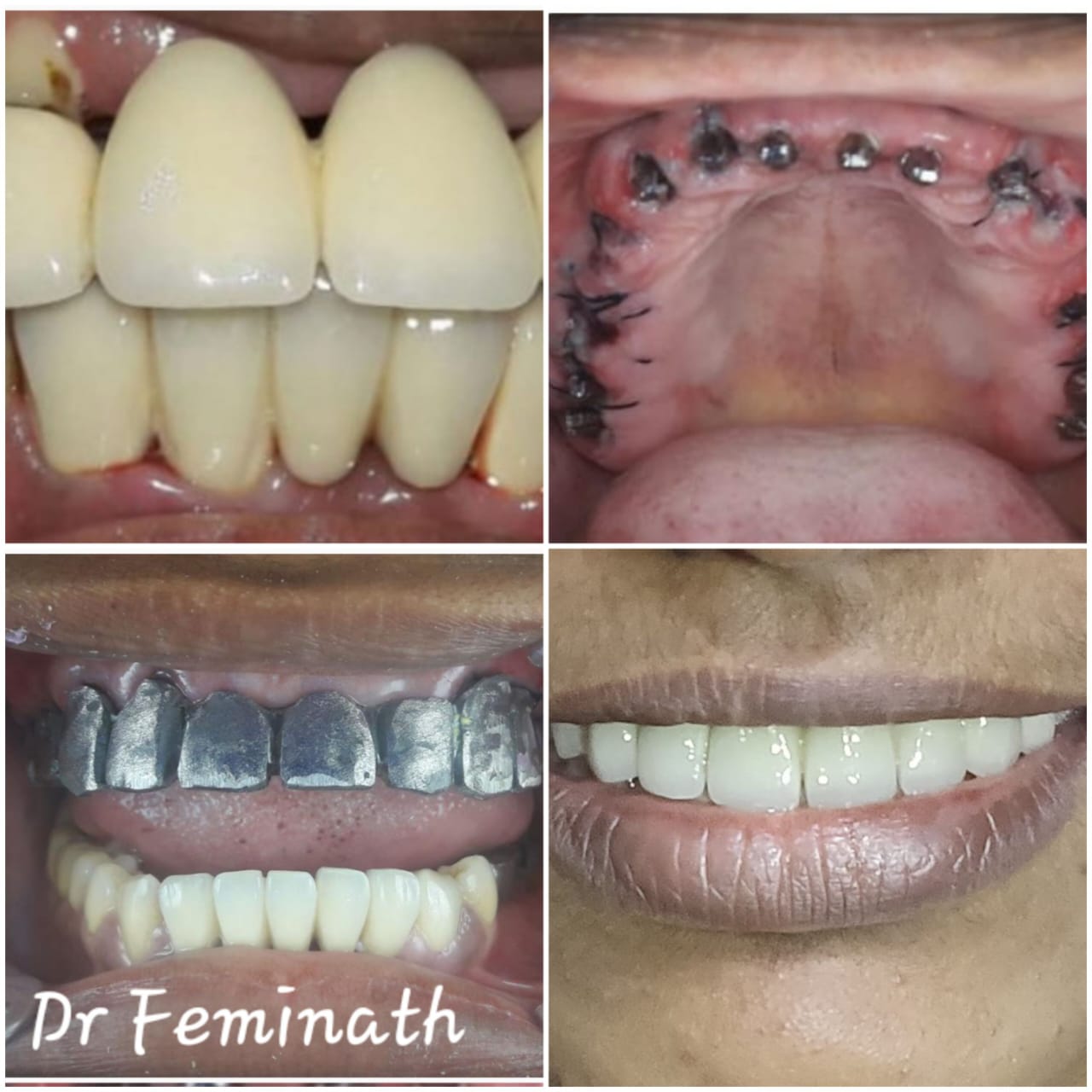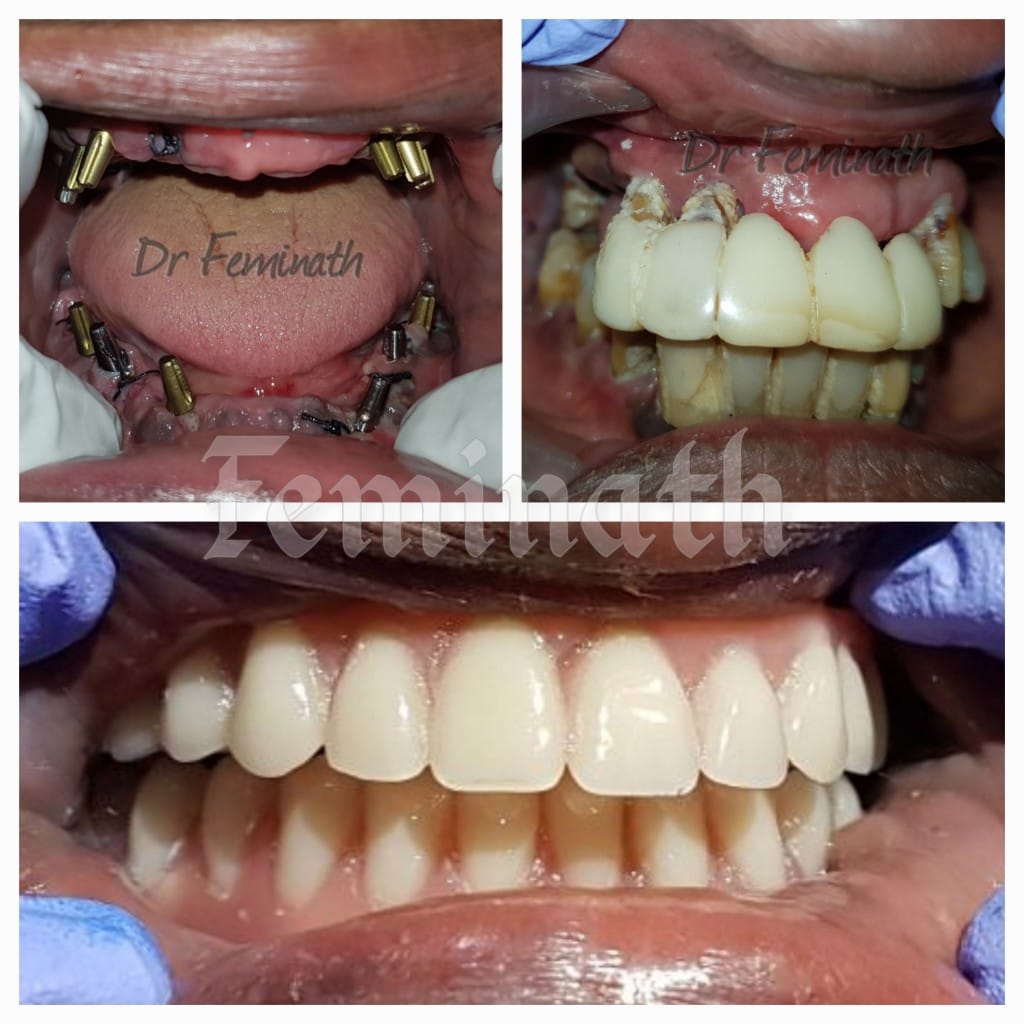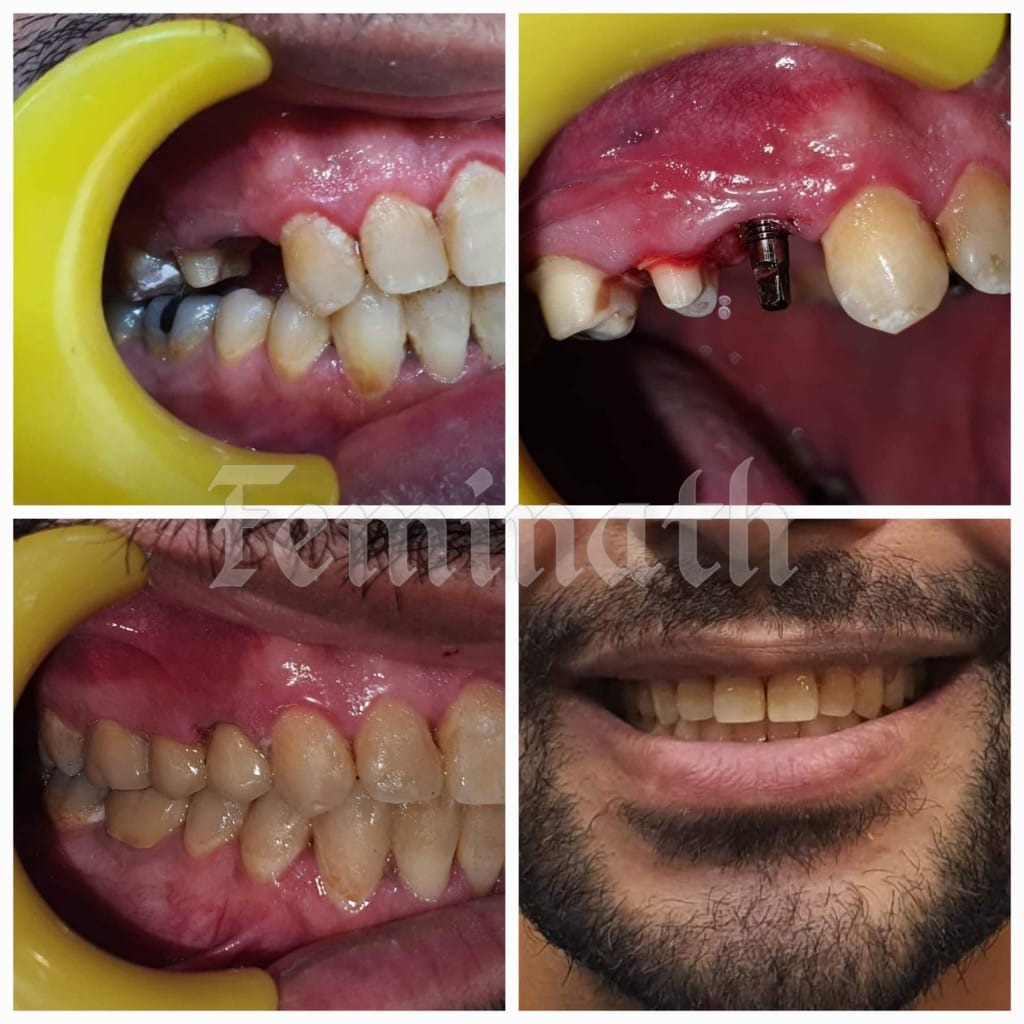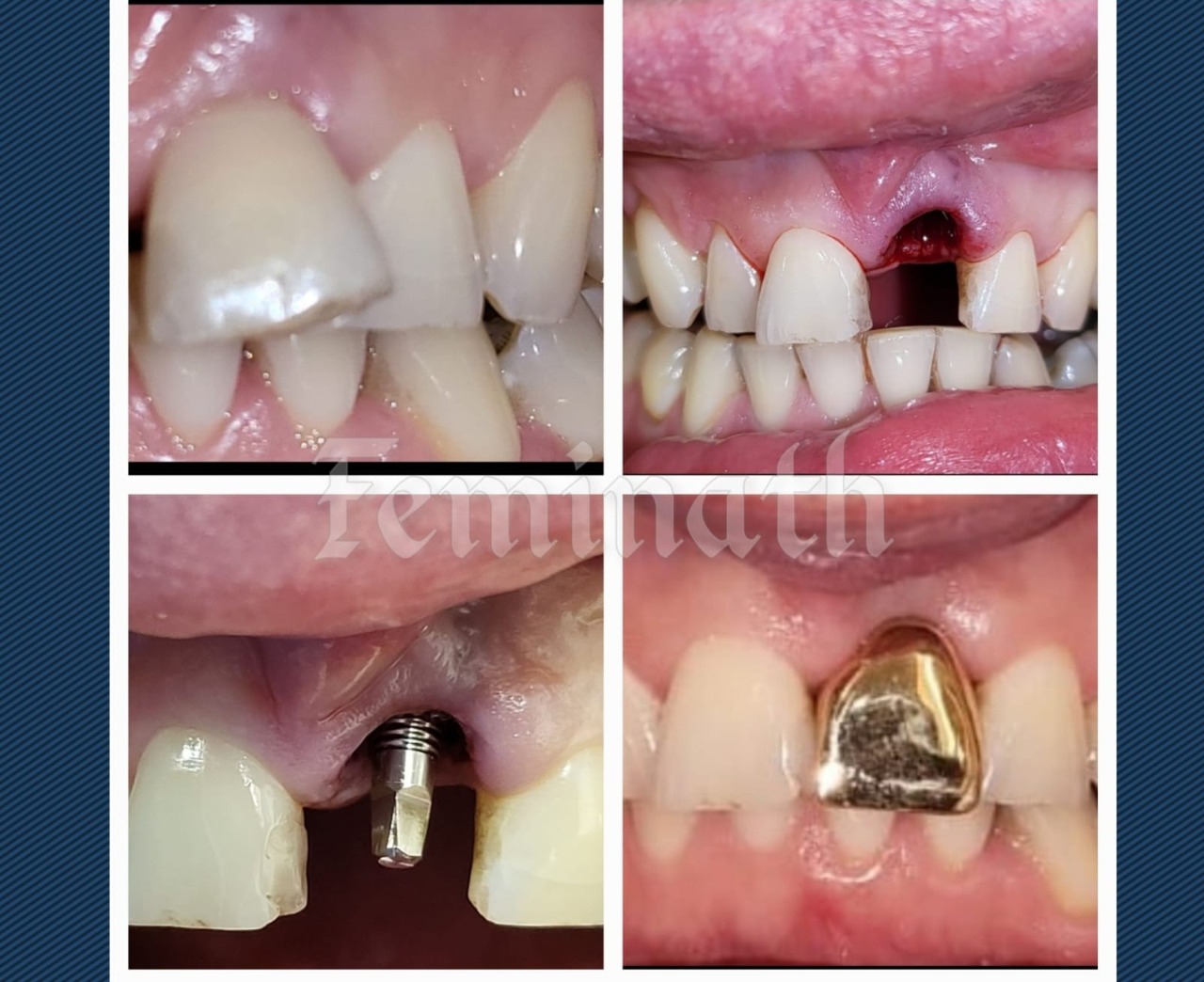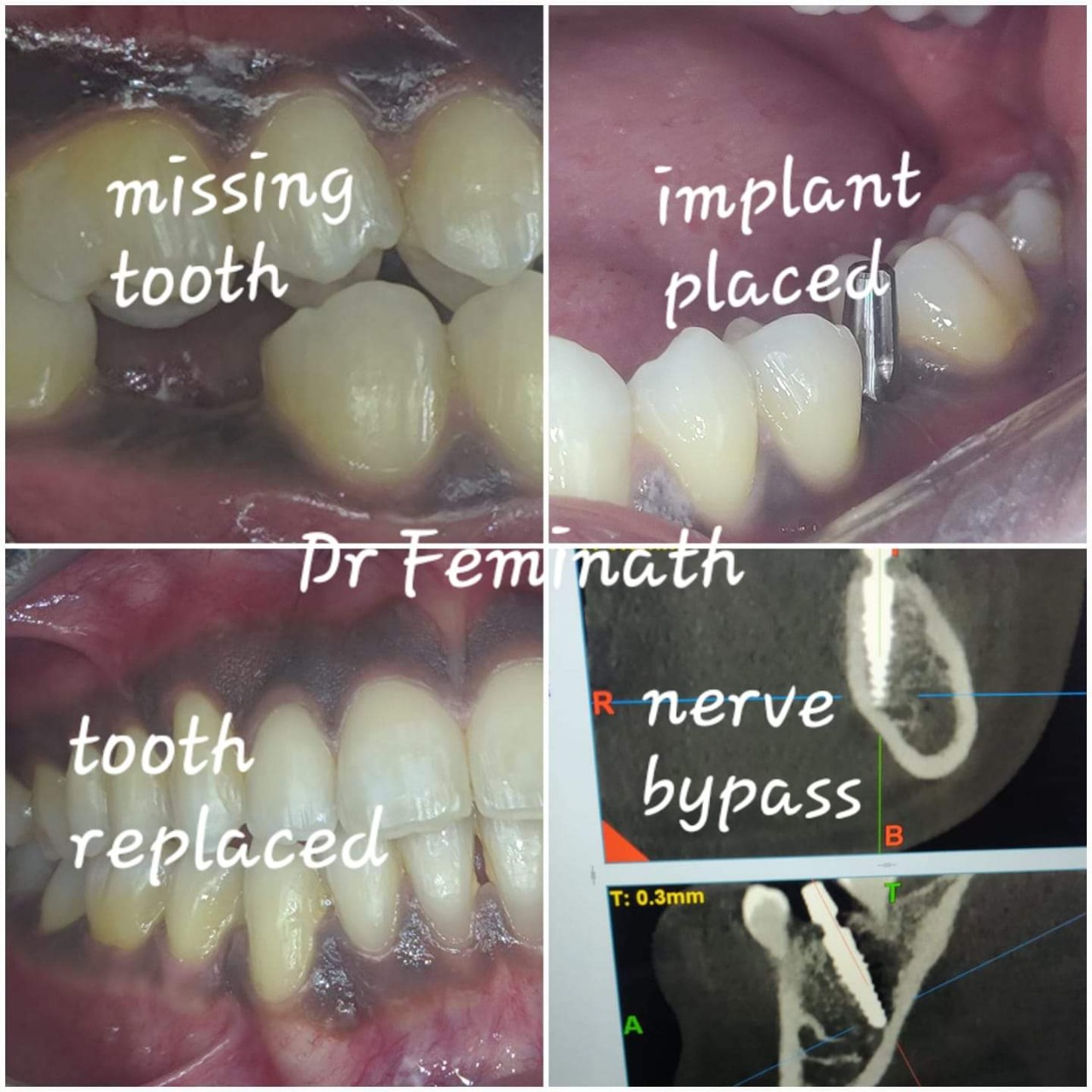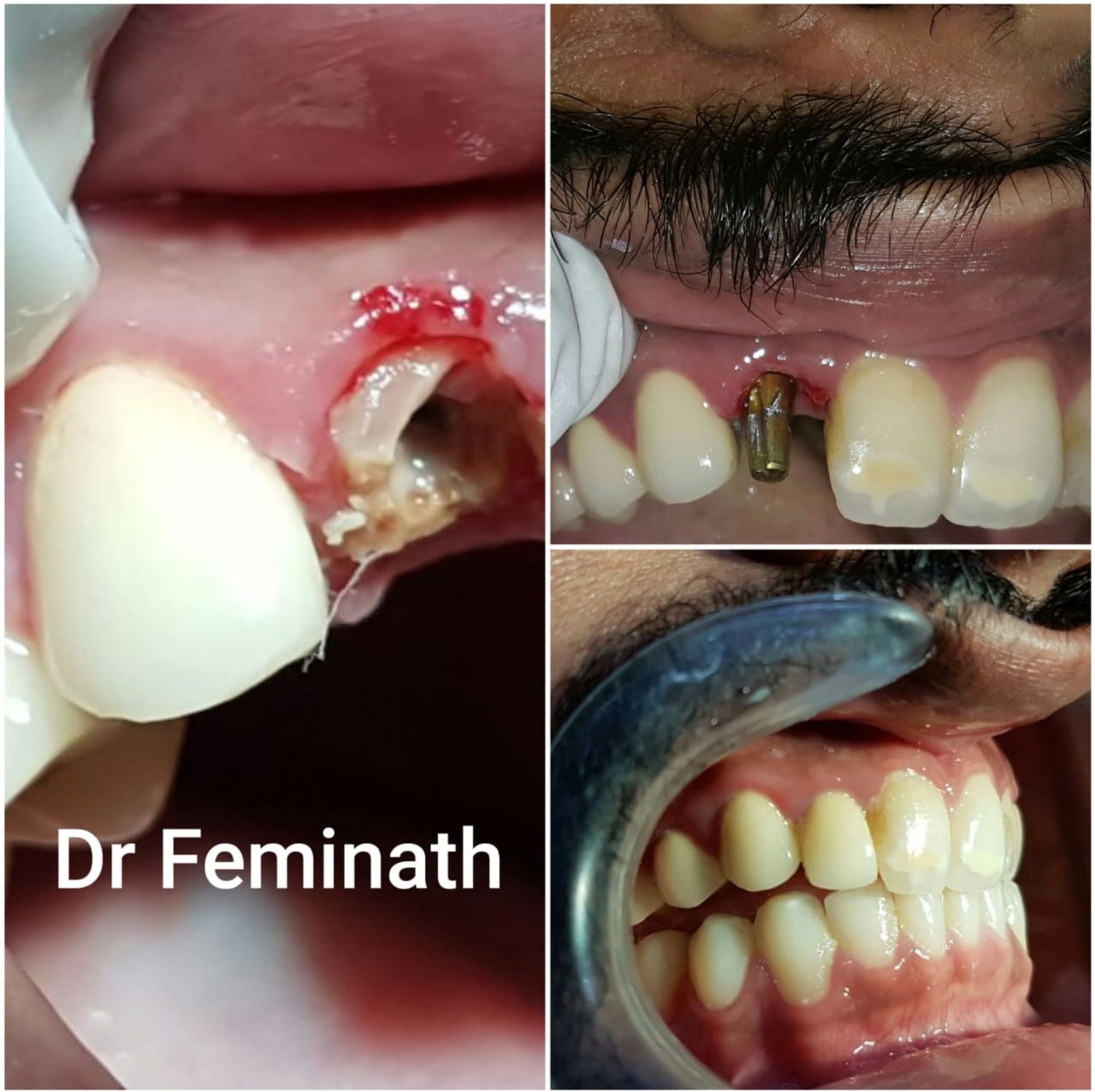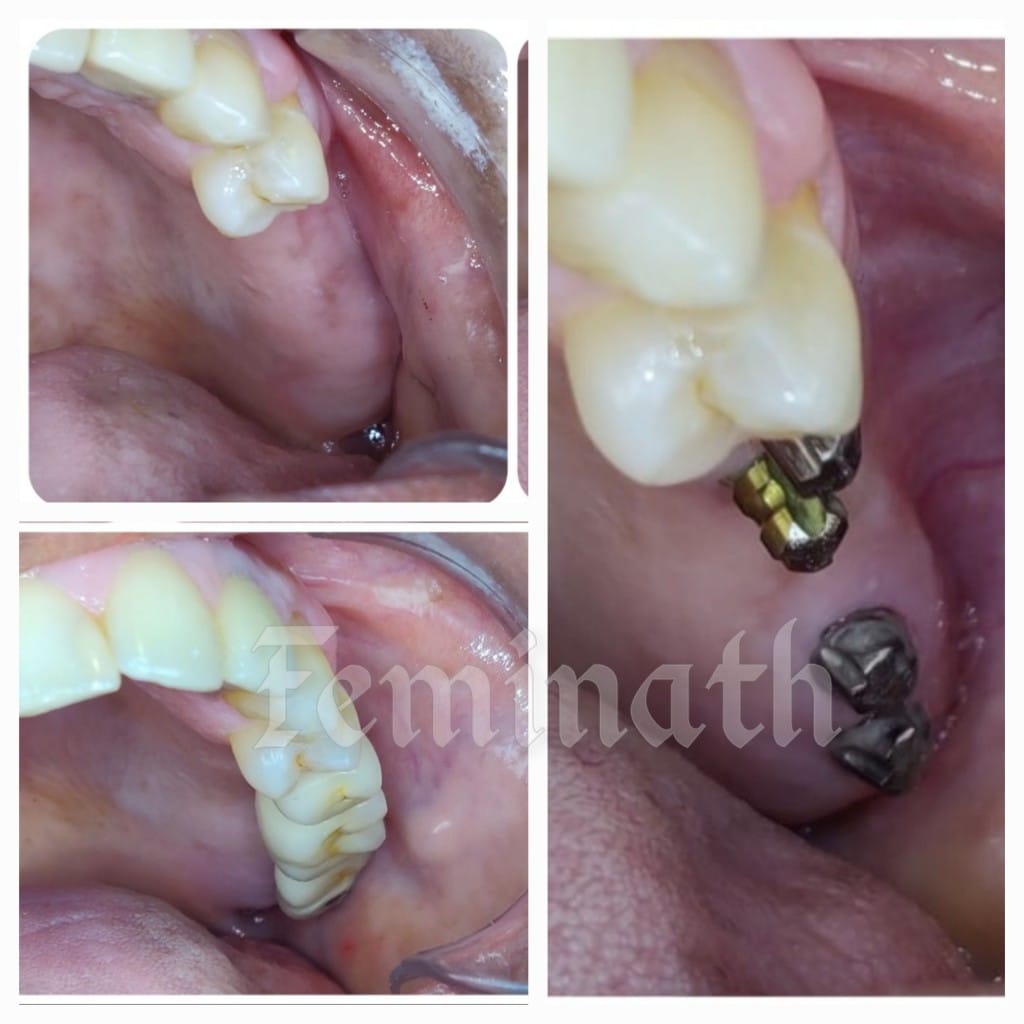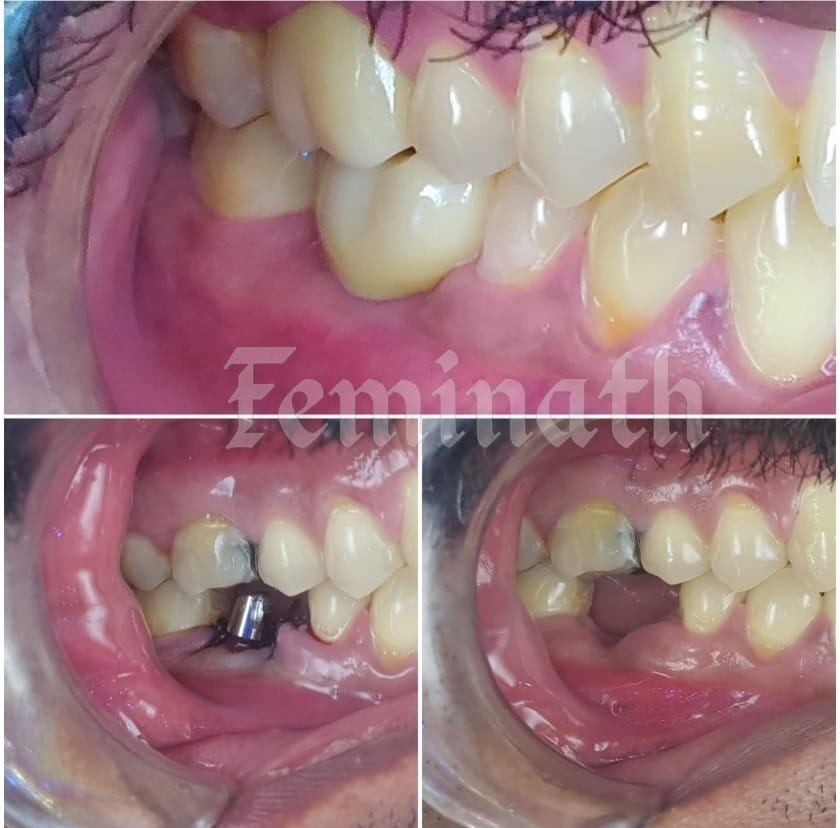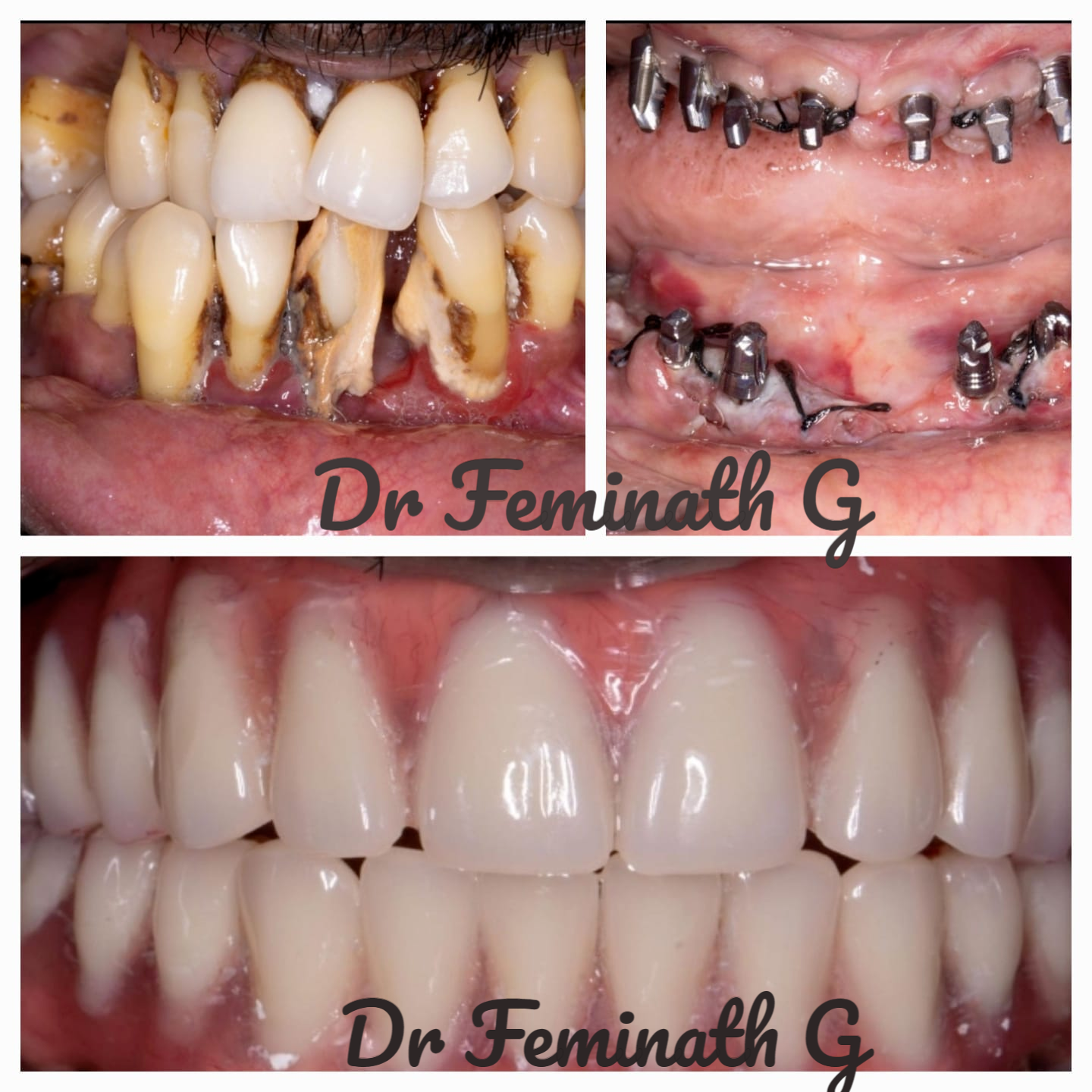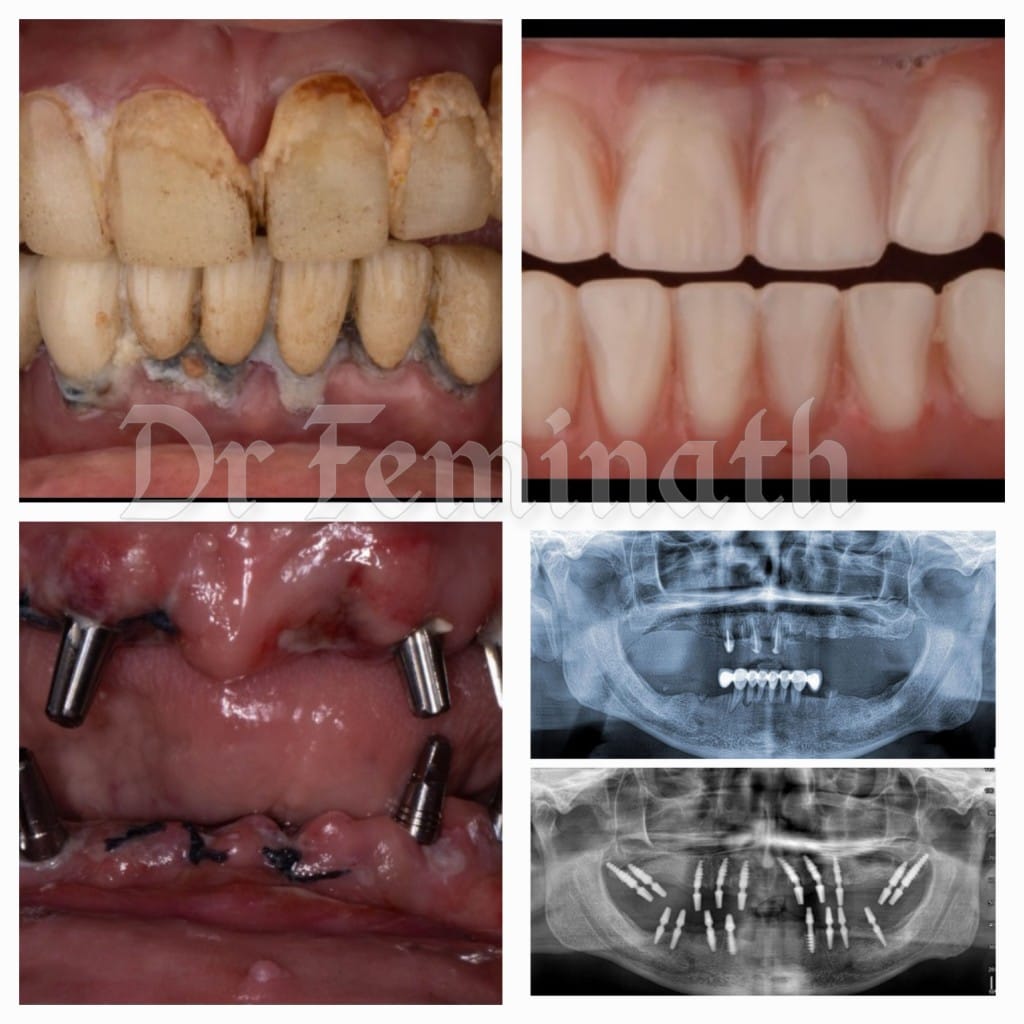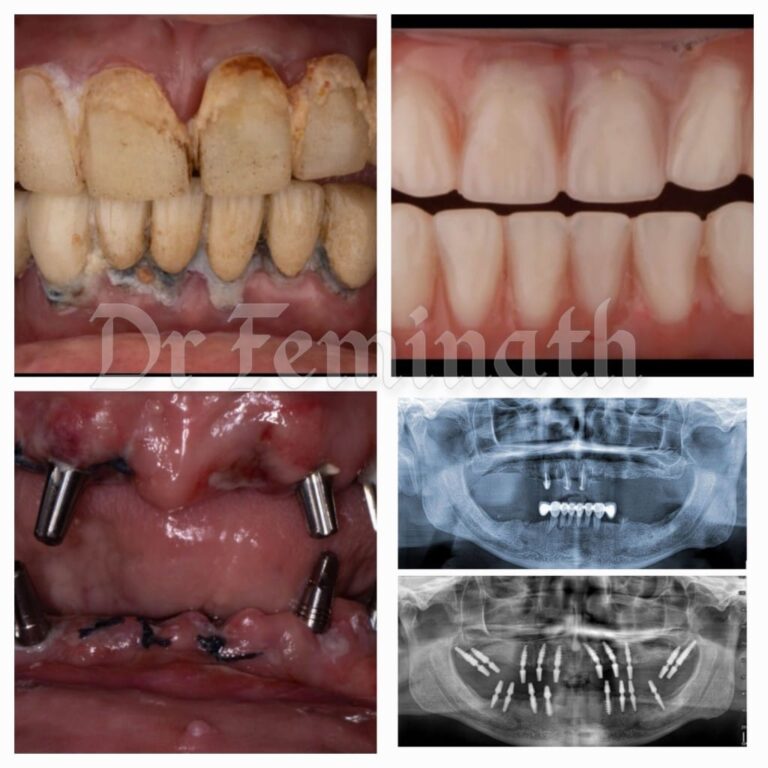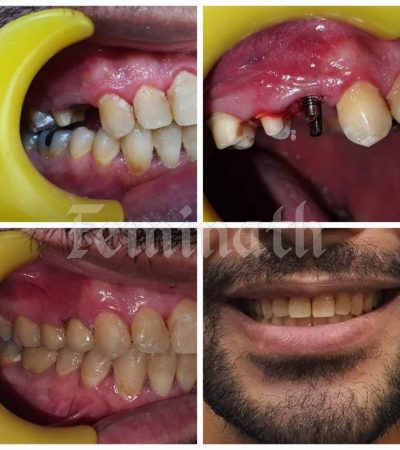FAQ
You will not need to go without replacement teeth. If the implants are not placed immediately with temporary teeth, then a temporary prosthesis can be made for you.
Uncontrolled diabetes, cancer, radiation to jaws, smoking, alcoholism or uncontrolled gum disease are all risk factors that can adversely affect your outcome. You may still be a good candidate with one of these diseases, but it would be good to thoroughly assess your situation and work with you and your doctor to increase your overall health and functioning. People who take certain medications such as steroids or drugs that suppress the immune system may not be suitable candidates for dental implants. People with certain habits such as severely grind or clenching teeth may put too much pressure on the implants, causing long-term damage to them
Avoid hard and crunchy foods in the first few days after your implant placement. In the future, avoid unnecessary risks like chewing on ice, hard candies and similar materials. Reduce acidic and sugary foods and drinks. Also, practising good oral hygiene with regular brushing and flossing should continue. Use a gentle circling motion when you brush. Follow your recommended professional cleaning and examination schedule by Smile Centre India.
There is no upper age limit to having dental implants. In most cases, you can be a suitable candidate, provided you are healthy and able to undergo a routine dental procedure, such as an extraction. It helps not to be a smoker, to have good oral hygiene, healthy gums and enough bone in your jaw to anchor the implant.
Dentures are one of the dental implant alternatives that many patients are familiar with. Dentures are an effective tooth replacement option that allows you to chew more thoroughly than you could with just gums or heavily damaged teeth. However, they don’t allow you to chew as effectively as dental implants or natural teeth, so your diet may be somewhat limited.
Dental implant surgery is one of the safest procedures in dentistry, and it is the only restoration method that stimulates natural bone beneath the missing tooth. However, dental implants do pose a small degree of risk, but your dentist will ensure that you meet certain eligibility criteria before the implants as a course of treatment. This means that implant failure rates are quite low and success rates quite high.
Implant procedure at our clinic is 100% pain-free.
Minor pain and discomfort are normal after surgery, when the numbing agents and sedation wear off. You may feel some pain, discomfort, swelling, bruising and inflammation by the end of the day. In most cases, the discomfort will peak within 2-3 days after your treatment and then begin to subside relatively quickly. On average, a patient may feel discomfort in the treated area, face, and jaw for at least 7 days. Discomfort levels may vary from person to person and depending on the number of implants placed. Some minor bleeding is also common for the first 24 hours after treatment.
Patients may expect some swelling, but the dentist may give antibiotics and painkillers to treat pain and swelling. Similar to other dental procedures using an ice pack can help with the swelling. Follow the instructions given to you by Smile Centre to ensure that you modify your diet and activities properly and give your mouth enough time to heal. Swelling and pain start to decrease from the third day after the procedure. Within 14 days, the patient may have no pain, and the implant may finally be healing nicely. If the pain and swelling are still present on the 14th day, a patient may need to visit a dentist immediately as it may be a sign of infection.
With regular brushing and flossing, the implant screw itself
can last a lifetime, assuming that the patient receives regular dental check-ups
every 6 months. The visible part of the tooth-replacement system (crown) lasts
about 10 to 15 years and it may need a replacement due to wear and tear.
However, maintaining excellent dental hygiene and using it cautiously could
extend the life of the crown beyond 15 years.
With regular brushing and flossing, the implant screw itself
can last a lifetime, assuming the patient receives regular dental check-ups
every 6 months. The visible part of the tooth-replacement system (crown) lasts
about 10 to 15 years and it may need a replacement due to wear and tear.
However, maintaining excellent dental hygiene and using it cautiously could
extend the life of the crown beyond 15 years.
Food will never get stuck under a single dental implant tooth, but food can get stuck underneath an implant bridge or implant
denture, However, they are easier to clean than natural teeth. Also, you never have
to worry about food particles collecting on the dental implant. Brushing and
flossing can clean dental implants, but a Waterpik Water Flosser is the most
efficient way to clean your gums and dental work.
Dental implants are designed to look and feel just like natural teeth. The dentist matches the colour and shape of your other teeth to
the implant. No one, not even you, will be able to tell you to have a dental
implant. The only way to discover a dental implant involves a radiograph to
show the metal that replaced the root of the tooth.
Going as little as 12 months with a missing tooth (including
extractions) causes the bone to atrophy (that is, bone density and height
decrease and deteriorate) almost immediately. To successfully get a dental
implant, you need enough bone to support the post. So, depending on how long
your tooth has been missing, you may not have enough bone remaining.
Another unwanted consequence of postponing dental implants
comes with the positioning of your teeth as your other teeth shift in response
to changes in the mouth, including missing teeth. So, when you wait too long to
get a dental implant, there might not be adequate space for the new tooth.
Also, the opposing tooth without a partner can erupt out of your arch and cause
issues with your bite. The eruption issues can also cause temporomandibular
joint pain (TMJ or TMD) which causes chronic pain in your jaw.
According to a 2016 study on dental implants and diabetes,
researchers found that when diabetes is under well control, implant procedures
are safe and predictable with a complication rate similar to that of healthy
patients. People with poorly controlled diabetes are at greater risk for dental
problems. They’re more likely to have infections of their gums and the bones
that hold their teeth in place because diabetes can reduce the blood supply to
the gums. High blood sugar may also cause dry mouth and make gum disease worse.
Also, in patients with diabetes age may matter more than usual. This is because the longer you’ve had diabetes, the more prone you are to infections and slower healing processes. If you have diabetes and are interested in getting dental implants, sooner is definitely better than later in most cases..
Yes. Dental implants can really be performed in one day by
taking out the tooth, insert a dental implant and attach a new tooth
immediately. Also, it is possible to take out a whole bunch of diseased teeth,
insert four to six dental implants and attach a whole set of brand-new teeth to
them on the same day, but everything has to be done under certain conditions.
It requires the right anatomy, the right set of implants, and the right
conditions in the patients.
No, Dental implants
are not suitable for children, as their facial bones are still growing
No. Dental implants are fixed solidly in the bone and allow
teeth to be replaced in a manner that is closer to natural teeth.

